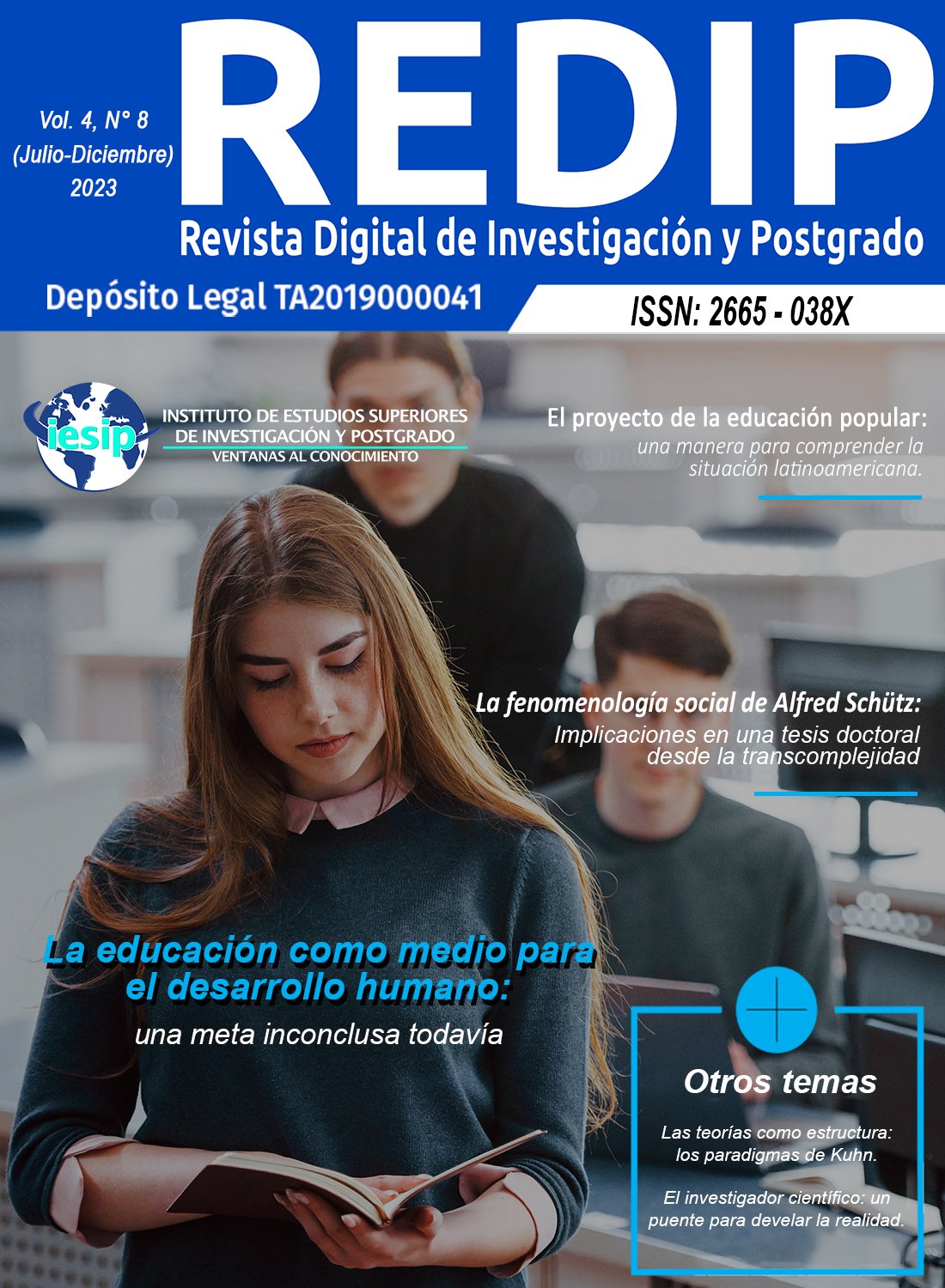The administrative process in the transcomplex organization
A theoretical and epistemological resignification from the transparadigmatic management
DOI:
https://doi.org/10.59654/n18kwq41Keywords:
Transparadigmatic Management, Administrative Process, TranscomplexityAbstract
The cardinal teleology of the essay is to generate a theoretical epistemological resignification about the classical administrative process (planning, organisation, direction and control) in transcomplex organisations within the transparadigmatic management approach. Its ontological relevance is located in the field of complex thinking within management science with cultural transmodernity as a socio-contextual epistemic background. The research is motivated by the gap between an administrative process born in modernity, of a disciplinary-fragmented nature and a current systemic, synergistic and performative approach based on a complex web of meanings. Theoretically, the work is based on the contributions of Balza (2021), Kaplan and Norton (2008), Koontz, Weihrich and Cannice (2012) and Morin (2002). The methodology used was a critical, dialectical and documentary hermeneutic which allows us to conclude that it is possible to re-signify the administrative process, a transconceptual and action change is proposed with the idea of giving it a meaning identifiable with transcomplexity. Undoubtedly, the epistemology of the administrative process is oriented towards new approaches or managerial models capable of addressing the ontological scenario of complexity and uncertainty resulting from advances in knowledge. The new cognitive logics of this new world are in sight, but to see them it is necessary to understand the context and redefine our perspective on reality.
Downloads
References
Balza, A. (2021). Gerencia transparadigmática en organizaciones transcomplejas. Apuntes desde la modernidad cultural. Fondo Editorial Red de Investigadores de la Transcomplejidad. FEREDIT.
Guízar, R. (1998). Desarrollo Organizacional. Principios y aplicaciones. McGraw-Hill Interamericana Editores.
Kaplan, R. y Norton, D. (2008). The execution premiun. Ediciones Deusto.
Katz, D. y Kahn, R. (2004). Psicología social de las organizaciones. 2da. edición. Trillas.
Koontz, H.; Weihrich, H. y Cannice, M. (2012). Administración. Una perspectiva global y empresarial. Decimocuarta edición. McGrawHill.
Hurtado, I. y Toro, J. (1997). Paradigmas y métodos de investigación en tiempos de cambio. Episteme Consultores Asociados.
Lanz, R. (2001). Diez tesis sobre cultura organizacional transcompleja. En R. Lanz (Compilador) Organizaciones Transcomplejas (pp. 161- 173). Caracas IPOSMO - Conicit.
Medina, J. y Ortegón, E. (2006). Manual de prospectiva y decisión estratégica: bases teóricas e instrumentos para América Latina y el Caribe. Naciones Unidas. Santiago de Chile.
Miklos, T. y Tello, M. (2007). Planificación Prospectiva: Una Estrategia para el diseño del futuro. Editorial Limusa.
Morín, E. (2002). La cabeza bien puesta, Repensar la reforma. Reformar el pensamiento. Nueva Visión.
Peña, P. (2008). Prospectiva: una herramienta gerencial. Universidad de la Amazonia. Ministerio de Educación Nacional.
Stella, M. y Silva, M. (2012). Del discurso epistemológico de la modernidad a una visión transcompleja de la ciencia administrativa. En Schavino, N. (Compiladora). La Transcomplejidad: Una nueva visión del conocimiento. REDIT.
Published
Issue
Section
License
Copyright (c) 2023 Revista Digital de Investigación y Postgrado

This work is licensed under a Creative Commons Attribution-NonCommercial-ShareAlike 4.0 International License.










